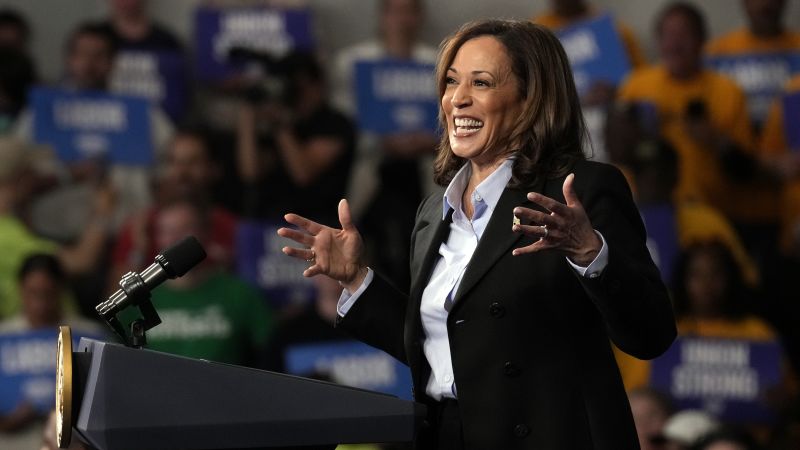Vice President Kamala Harris held a series of Labor Day-themed events in Michigan, Wisconsin, and Pennsylvania as a part of the fall campaign sprint leading up to the November election. The focus on these three states, known as the “Blue Wall,” was crucial for Harris to secure victory, following in the footsteps of President Joe Biden’s successful campaign in 2020. Harris emphasized the importance of unions and workers, promising to strengthen protections for collective bargaining and vowing to end union busting. She spoke at a rally in Detroit, flanked by national union leaders, and reiterated her support for legislation that would ensure workers’ rights to unionize.
The Detroit rally, which took place 64 days before the election and 24 days before mail-in absentee voting began in Michigan, was a key moment for Harris to rally support from workers. She cautioned against relying too heavily on polls and encouraged her supporters to continue running as if they were the underdogs in the race. Additionally, Harris participated in a campaign event with labor leaders in Detroit before joining President Joe Biden for a rally in Pittsburgh, marking their first joint campaign appearance since Biden endorsed her following the end of his reelection bid in July. Harris also used the Pennsylvania event to oppose the purchase of US Steel by Japanese-owned Nippon Steel.
Harris’s running mate, Minnesota Gov. Tim Walz, took part in Labor Day events as well, giving a speech at the Milwaukee Area Labor Council’s Labor Fest 2024 and meeting with labor leaders in St. Paul, Minnesota. Former President Donald Trump and his running mate, Ohio Sen. JD Vance, did not have any events scheduled for Labor Day. Trump used social media to criticize Harris over high gas and grocery costs and touted his work renegotiating America’s trade deal with Mexico and Canada. The Harris campaign responded by accusing Trump of being anti-worker and anti-union and criticized him for not holding any events on the holiday.
Michigan Gov. Gretchen Whitmer praised Vice President Kamala Harris’s record and criticized the Republican ticket as being disconnected from the common worker. Whitmer highlighted Harris’s support for labor and her work as a senator and attorney general standing with workers and taking on powerful corporations. Trump, on the other hand, has been critical of labor leaders and has focused on the Biden administration’s efforts to boost the production and purchase of electric vehicles, a move he argues will come at the expense of autoworkers. Michigan Trump allies criticized Harris’s stance on auto manufacturing and accused the administration of jeopardizing autoworkers’ jobs with policies aimed at increasing the production of electric vehicles in the US.
Overall, Vice President Kamala Harris used Labor Day events in key swing states to highlight the importance of unions, workers’ rights, and collective bargaining. Her campaign focused on securing support from labor leaders and workers, emphasizing the dignity of work and vowing to protect and strengthen unions. The events in Michigan, Wisconsin, and Pennsylvania marked the unofficial launch of the fall campaign sprint, with Harris aiming to build on momentum in the lead-up to the November election. The contrast between Harris’s pro-labor stance and Trump’s criticism of unions and labor leaders underscored the significance of labor issues in the election campaign.













